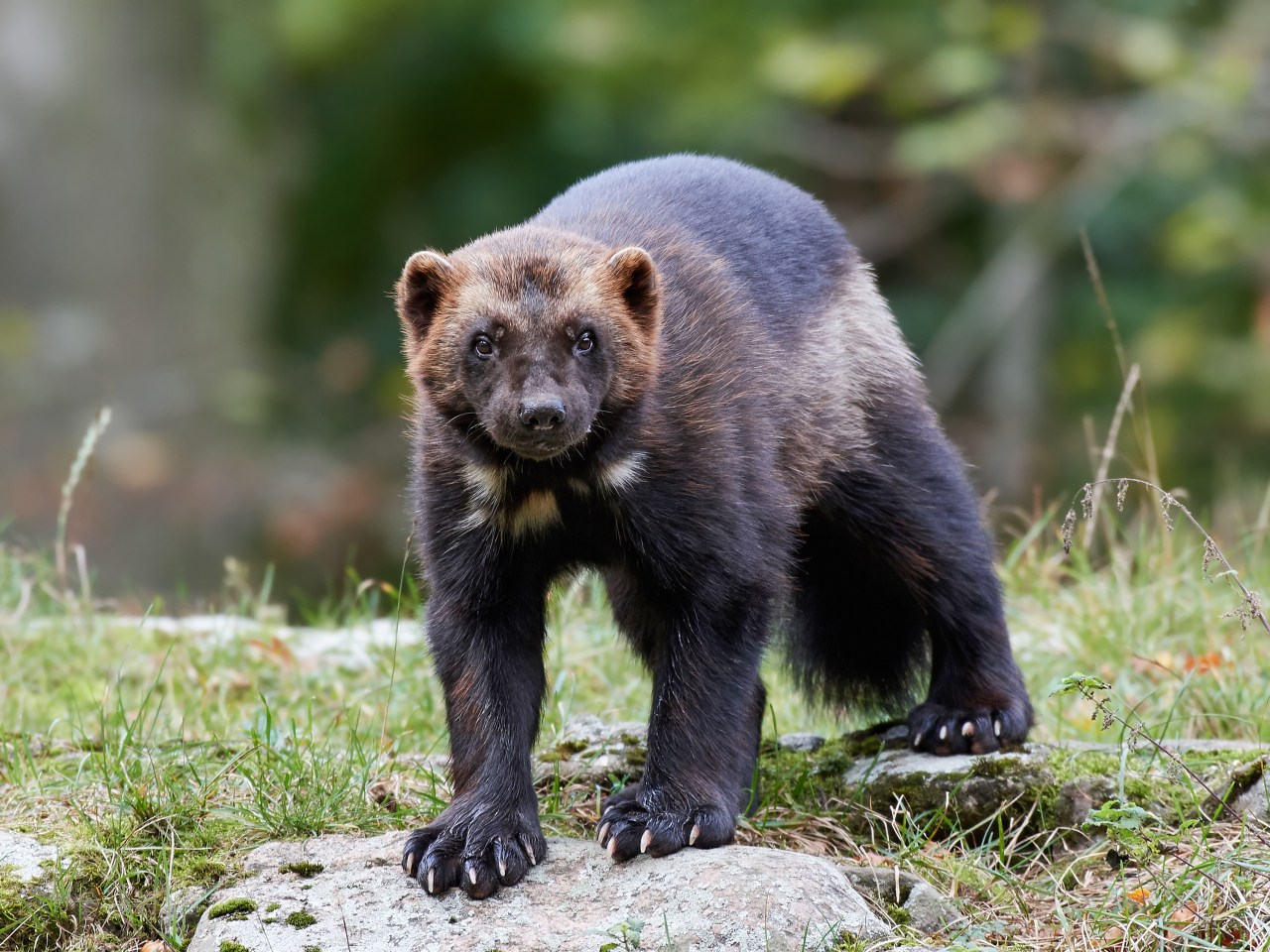U.S. Fish and Wildlife Service to decide wolverine protections by end of August
Conservation Northwest / Jul 09, 2020 / Restoring Wildlife, Wolverine
Settlement orders U.S. Fish and Wildlife Service to act following four years delay
July 2, 2020 – View settlement agreement as a pdf
Conservation Northwest has worked for wolverine conservation for two decades, both in the courts and on the ground through our Citizen Wildlife Monitoring Project. Our several wolverine monitoring sites are set up to capture remote camera images of their unique chest blazes and collect hair snags for DNA samples, helping researchers study their population in Washington state. We also help administer the Cascades Wolverine Project, a grassroots effort to support wolverine recovery in the North Cascades.
Missoula, MT — The U.S. Fish and Wildlife Service will be required to decide whether wolverines in the lower-48 states should be protected under the Endangered Species Act by Aug. 31, 2020, in accordance with a legal agreement filed in court today with conservation groups.

The agreement stems from a lawsuit that conservation organizations filed in March to prod the agency to determine the fate of wolverines after four years of delay. That delay followed a 2016 court ruling that directed the Service to take action on requests to grant legal protection to the wolverine “at the earliest possible, defensible moment in time,” stressing that “[f]or the wolverine, that time is now.”
“Recent scientific information has underscored that wolverines face threats from trapping, disruption of their winter range, and — most of all — destruction of their snowy habitat due to climate change,” said Tim Preso, Earthjustice attorney, who represented the conservation groups in the lawsuit. “It is past time for the government to take action to preserve this iconic species.”
There are fewer than 300 wolverines left in the contiguous United States, and about three dozen estimated individuals in Washington state. The animals are severely threatened by climate change, which reduces the spring snowpack they need for denning, and habitat loss caused by snowmobiles, roads and other development. Protection under the Endangered Species Act would trigger new conservation efforts for wolverines.
The agreement resolves a lawsuit filed by Earthjustice on behalf of the Center for Biological Diversity, Conservation Northwest, Defenders of Wildlife, Friends of the Clearwater, Greater Yellowstone Coalition, Idaho Conservation League, Jackson Hole Conservation Alliance, Klamath-Siskiyou Wildlands Center, and Rocky Mountain Wild.

“While wolverine are as tough and rugged as their wilderness home, they face dire threats from a warming climate, shrinking snowpack, and an increasingly fragmented habitat,” said Dave Werntz, Science and Conservation Director at Conservation Northwest. “Endangered Species Act protections will help marshal the resources and recovery actions to ensure wolverine have a future in the west’s wild country.”
“Wolverines are legendary for the ferocious spirit that we all need to embody in order to protect our ecosystems and communities,” said Skye Schell, executive director of the Jackson Hole Conservation Alliance. “So it pains us to know that wolverines are ever-more threatened by habitat loss and now climate change. We call on the Fish and Wildlife Service to put science over politics and finally give wolverines the protections they deserve under the Endangered Species Act.”
“Climate change and habitat fragmentation are pushing wolverines to the brink,” said Jonathan Proctor, Rockies and Plains program director at Defenders of Wildlife. “The Fish and Wildlife Service has a moral and legal obligation to protect these animals, and we are here to ensure it performs its duty without further delay.”
“The decline of the wolverine on the West Coast is telling us that we must take bold action to stop climate change,” said Joseph Vaile of the Klamath Siskiyou Wildlands Center. “Without deep snowpack, the wolverine’s range will continue to retract until it winks out entirely.”
Background
Wolverines, the largest land-dwelling members of the weasel family, once roamed across the northern tier of the United States and as far south as New Mexico in the Rockies and Southern California in the Sierra Nevada range. After more than a century of trapping and habitat loss, wolverines in the lower-48 today exist only as small, fragmented populations in Idaho, Montana, Washington, Wyoming, and northeast Oregon.
With no more than 300 wolverines remaining in these regions, the species is at direct risk from climate change. Wolverines depend on areas with deep snow through late spring. Pregnant females dig their dens into this snowpack to birth and raise their young. Snowpack is already in decline in the western mountains, a trend that is predicted to worsen with a warming climate.
Wolverine populations are also at risk from trapping, human disturbance, extremely low population numbers resulting in low genetic diversity, and fragmentation of their habitat. Without new conservation efforts the dangers faced by wolverines threaten remaining populations with localized extinctions and inbreeding.
learn about our work for wolverines on our webpage.


